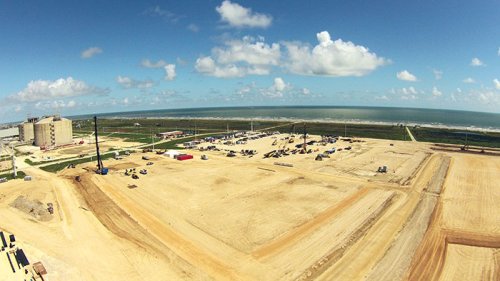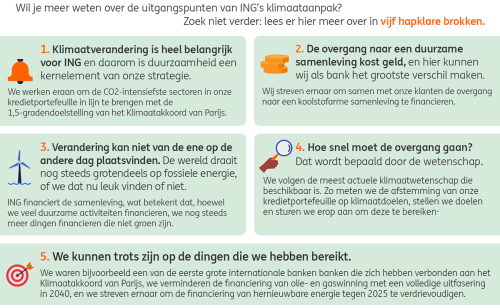ING leverages its leading position in global oil & gas to develop its US franchise
12 October 2015
On a recent trip by ING’s Management Board Banking and ING’s Supervisory Board to visit the Freeport Liquefied Natural Gas (LNG) facility on Quintana Island, Texas, Bill Connelly, head of ING Commercial Banking and Richard Ennis, ING´s head of natural resources Americas, discussed the changing nature of the US energy business and how the bank is leveraging its leading global position in the oil and gas sector to continue growing its US energy finance operations.

Dramatic renaissance
The U.S. oil & gas industry has undergone a dramatic renaissance over the past few years, in large part as a result of the shale revolution. GDP impact from the energy sector is predicted to surpass $500 billion by 2025, up from $284 billion in 2012. The global energy industry has suffered under the steep drop in oil prices with West Texas Intermediate oil prices down from around $90 a barrel in October 2014 to $46 in September 2015.
But in the US, industry players are adjusting rapidly to changing conditions and adapting to the current environment. ING is playing a critical role in financing that transformation – with a strong franchise throughout the energy value chain, both in the US and globally.
Freeport LNG project
ING was a lead arranger on the Freeport LNG project. The first stage of this project realized ship docking facilities, two large LNG storage tanks as well as regasification equipment, which serve to revaporize the liquid gas, to prepare it to be stored and transported at minus 260 degrees Fahrenheit.
As a consequence of the dramatically increased availability and production of US natural gas, Freeport LNG is currently realizing an expansion of its terminal to enable liquefaction and export of US natural gas in the form of LNG. The terminal will still be able to import LNG if it is needed for the domestic market.
“Structurally, the US is going from being an importer of energy to a very large exporter of energy,” says Ennis. “For us as a bank, it is a very positive development - and we are excited about it because this is exactly what we finance, and feel comfortable doing.”
US reliable market
US energy exporters have a key advantage over some of their global competition. “A lot of the potential customers of US energy exporters are electric utilities. And, for them, the cost of gas may be secondary to reliability and the diversity of supply. The US is a lot more reliable than just about any other place,” says Connelly.
“As a gas utility, the one thing you want to make sure is that you’ve got a reliable supply of gas coming your way. In the US, the combination of ample supply, the infrastructure investment that is taking place - and therefore the confidence that the gas is there and can be exported - combined with a very reliable commercial code, makes it very attractive from an export perspective.”
Global clients, global business
ING is uniquely positioned to support the US market. “Going back to the
international network, a lot of the electric utilities that are the customers of these facilities, at the other end of these take-or-pay contracts, are our clients, globally. So when something like Freeport LNG comes along, we feel comfortable with the risk because we are banking the contracts and the contracts are iron clad.” This is one of the reasons why ING, despite its large oil and gas business, has limited exposure to oil price risk.
Double digit growth
ING is active in over 40 countries around the world, with a long history in the energy sector. “As a major European bank, we have been active in financing natural resources - including energy - for over 30 years,” says Connelly. “We were among the first banks to participate in trade and commodity financing worldwide. We have been active in financing almost every aspect of the energy value chain and have built that into one global business within ING.”
“Given the export potential for US energy companies, we see a real opportunity to grow our franchise, here,” says Connelly. “So we are investing in terms of capital and people to continue developing our natural resources business, which has been developing at a double digit growth rate over the past few years.”

